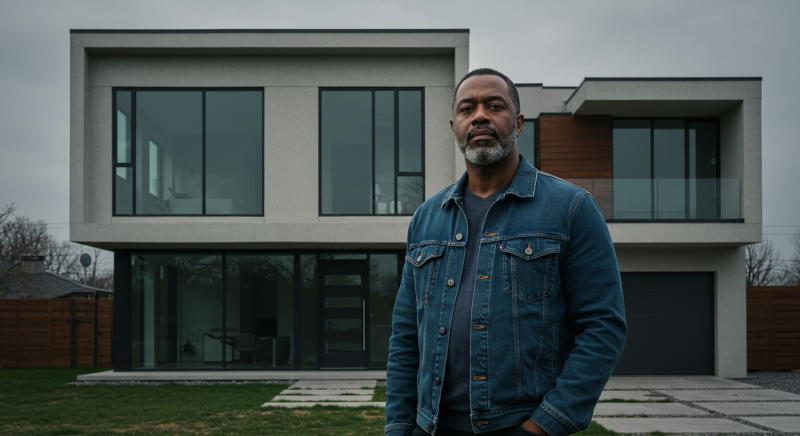Content Outline:
- Introduction: The Rent Struggle in Nigeria
- Key Takeaways
- What Is Financial Aid for Rent?
- Type of Financial Aid available in Nigeria
- A Step By Step Guide to Applying for Rent Assistance
- The Best Sources of Emergency Rent Financing
- Frequently Asked Questions (FAQs)
- Conclusion: Take Charge of Your Financial Future
The Rent Struggle in Nigeria: High Rentals and Economic Downturn

Imagine this: You can’t make a rent payment — it’s the end of the month, and your landlord is knocking on your door, demanding it. The stress is so great that you don’t even know where to turn. For many Nigerians, this is not simply a story — it’s a daily reality. The growing rise in living costs as well as erratic economic upturns mean merely dealing with your rent becomes an exercise in futility.
But there’s good news: there are financial aid programs and emergency funding sources created to help people like you. Grants, loans and subsidies are all on offer, if you know where to look. Here’s everything you need to know and how to apply for financial assistance for rent in Nigeria. In the end, you’ll have a clear path to getting the support you want.
Key Takeaways
- Financial aid for rent: Grants, loans, subsidies
- Key sources of assistance include government programs, NGOs, and crowdfunding platforms.
- Follow our step-by-step guide to improve your chances of being approved.
- Do not make these common mistakes, such as failing to complete applications or missing deadlines.
What Is Financial Aid for Rent?
Financial aid for rent is money assistance for an individual or family that may have a hard time paying their rent. Aid can be in different forms, for example:
Grants: Free money that you don’t have to pay back.
Loans: Money that had been borrowed and needs to be paid up, often low interest
Subsidies: These are partial payments made directly to your landlord for you.
These programs may be offered by government offices, non-government-parties (NGOs) or private schools. They aim to avoid homelessness and provide temporary assistance as their event.
The Different Types of Financial Aid Available in Nigeria
The types of financial aid available for rent in Nigeria.
Government Grants
Programs, such as the National Social Investment Program(NSIP), provide cash transfers that can help with rent paying.
NGO Support
Shelter Afrique and Red Cross Nigeria are among the organizations providing housing assistance and emergency funding.
Crowdfunding
You can create campaigns for rent assistance on platforms like GoFundMe and Donate-ng.
Religious Organizations
Most churches and mosques maintain welfare programs for providing assistance for rent and other financial needs to their members.
Microfinance Loans
Institutions like LAPO Microfinance Bank offer small loans that can be used for rent.
How to Get Rent Help: A Step-by-Step Guide
Follow these steps to obtain rent financial aid:
Assess Your Situation
Figure out how much rent you have to pay and for what duration. This guides your determination of the type of aid.
Research Available Programs
Online resources, social media and local government offices can help you find programs that are right for you.
Gather Required Documents
Common requirements include:
- Income (or Non-Income) Statements
- For Monthly Renters: Eviction Notice or Rent Receipt
- Valid identification (e.g., National ID, voter’s card)
- Bank statements
Fill Out the Application
Be thorough and honest. Make sure there are no errors before sending.
Submit Before the Deadline
Don’t wait until the last minute. Your early submissions indicate you are serious.
Follow Up
And if you don’t get a response by the specified time, follow up politely.
Explore Multiple Options
Don’t depend on a single program. Be sure to apply to a few to maximize your chances.
THE BEST SOURCES OF EMERGENCY RENT FINANCING

Here is a comprehensive overview of the best sources of emergency funding for rent in Nigeria with actionable steps on how to access each of the options:
1. National Social Investment Program (NSIP)
The NSIP is a federal government programme established to reduce poverty and give financial support to poor Nigerians. At its core, the Conditional Cash Transfer (CCT) program gives monthly stipends to low-income households. These funds are available for basic needs, such as rent.
How to Get Started:
- visit the NSIP official website For more information about available programs,
- Confirm your state’s participation in the CCT program.
- Find any documents you need, like proof of income (or lack of), a valid ID, banking info.
- Apply via your local government office or NSIP portal.
2. Shelter Afrique
Shelter Afrique is a pan-African housing finance institution that promotes the provision of affordable housing on the continent. Although focused mainly on long-term housing solutions, they also provide emergency housing assistance when needed.
How to Get Started:
- Learn more about Shelter Afrique programs on the Shelter Afrique website
- Call their office in Nigeria to ask about emergency rent assistance.
- Get your application in order, including proof of financial stress and a letter from your landlord.
3. GoFundMe and Other Crowd-funding Sites
Crowdfunding sites such as GoFundMe, Donate-ng, or Flutterwave facilitate the creation of campaigns for collecting funds toward rent. These platforms especially work well if you have a compelling story and a big network of supporters.
How to Get Started:
- Sign up on GoFundMe or Donate-ng
- Post a heartfelt story about your situation and why you need rent assistance.
- Use social media: For example, you can share your campaign on platforms such as Facebook, Twitter, WhatsApp, etc.
- Communicate with donors for transparency and integrity.
4. Religious Organizations
In Nigeria, several churches and mosques have welfare schemes to help members in financial distress, such as paying rent. Some examples are the Redeemed Christian Church of God (RCCG) and Nasrul-Lahi-L-Fatih Society (NASFAT).
How to Get Started:
- Contact your local church or mosque and ask about their welfare programs.
- Documentation of financial distress, like an eviction notice or statement from the landlord about missed rent.
- So be ready to explain how the aid will help you and your family.
5. Microfinance Banks
Small loans are provided by microfinance banks (e.g. LAPO Microfinance Bank, AB Microfinance Bank). They usually have low-interest rates and some do come with flexible repayment terms.
How to Get Started:
- Go to a resource website of a reputable microfinance bank, such as LAPO Microfinance Bank
- Review their loan products and eligibility criteria.
- Gather necessary documents, including a valid ID, proof of income, and a bank statement.
- Apply online or in a branch near you.
6. State Government Programs
The relief programs Some state governments in Nigeria have also initiated rent relief programs in favor of their residents. An example of such measures include the Lagos State Rent Relief Program and the Rivers State Housing Scheme, two programs that provide financial assistance for low-income earners.
How to Get Started:
- Go to your state government’s official website to see what programs are available.
- Call the Ministry of Housing or Social Welfare for details.
- Provide all necessary personal, financial and technical documents as required for application.
7. NGOs and Charities
Non governmental organizations such as the Red Cross Nigeria and Save the Children occasionally provide emergency cash aid for rent and other basic necessities.
How to Get Started:
- Check the websites of NGOs such as Red Cross Nigeria or Save the Children Nigeria.
- Check their programs and eligibility criteria.
- Submit an application with supporting documents, such as an eviction notice and proof of income.
Frequently Asked Questions (FAQs)
Q1: Can I apply for several rent assistance programs at the same time?
yes, you can apply to multiple programs for aid to both help your chance of receiving aid. Just be sure you are eligible for each program.
Q2: What is the time frame to receive rent assistance?
It differs in the case of the program. Some provide relief quickly, while others may take weeks or months to review applications.
Q3: I don’t qualify for any programs.
If you don’t qualify for formal programs, explore other options like crowdfunding, borrowing from family or negotiating a payment plan with your landlord.
Q4: Are there scams to be aware of?
Yes, programs that request fees up front or personal banking info are probably scams. Make sure to check the authenticity of the organization before applying.
Conclusion: Take Charge of Your Financial Future
If you’re struggling to pay rent, it can feel overwhelming — and you don’t have to go through it alone. By taking advantage of the resources and programs in this article, you can get the financial assistance you need to remain in your home. Keep in mind that assistance is out there — but you have to take the first step.
Get started today by researching programs, collecting your documents, and applying. Be sure to pass this on to friends or family who may benefit from the information. With only you and me, we can build a better financial future.
External Links:
National Social Investment Program (NSIP)
With this guide, you’ll be well on your way to finding the rent assistance you need. Good luck!

